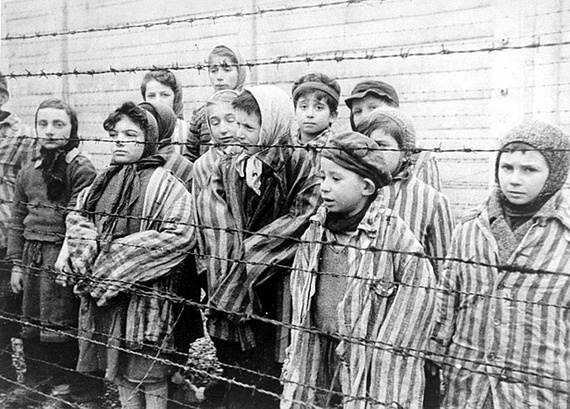
To the past, present and future Buckeyes, I wanted to share a few thoughts before I walk at commencement:
To the high school senior who just accepted her college admissions; to the students who lived down the hall sophomore year; to my fellow graduating seniors and everyone in between: I want to share with you what I couldn’t find in the classroom, but something you can only find within yourself.
On a cool evening, a young girl in a blue jacket caught the attention of a young boy about her age through the wires of the fence. He was in forced labor on one side and so was she on the other. Every day they would glimpse over at each other. With the unethical conditions, their food was being rationed to 180 calories a day, and her tiny frame was becoming more and more skeletal. At night, he would share whatever little ration of food he had with her through the fence so that they both could survive. The train stopped by every day, and each day groups of people would get on and off — off the train to work like the boy and girl and onto the train to be transported to the gas chambers. The young lady was called up by the Nazi guard with hundreds of others to get onto the freight car where people were remorselessly packed like sardines. The brave young boy went up to the guard and his heart spoke, “If you take her, you take me with her.” It was a miracle that they both didn’t get killed at that moment. Not many months later, the two lovebirds, brought together by tragedy, found each other after the war.

The young boy and girl who were robbed of their childhood, forced to grow up as young teenagers, tragically stripped from their homes, losing their parents, siblings, and friends, sent to multiple concentration camps, coming eye to eye with death and starvation, yet they came out alive — and they are my grandparents. I am not telling this to trivialize their experience by omitting their intricate personal stories of survival nor am I telling this story for pity. Instead, I am sharing this story because there is something we can all learn from this. My grandparents chose not to be defined by what was done unto them or by the tragedies they endured, but rather how they responded to adversity and determined their identity. They did not survive: They persevered. Their unwillingness to give up and their tenacity to move forward resonate with them far more than the hell they endured.
I will share another personal story. Just a few weeks before September 11, 2001, I was in Israel with my family eating pizza at Sbarro. Not too long after it was blown up by a suicide bomber terrorist: strike one. I went to Rimon’s for dinner with my cousins another night, and not too long after I found out that it was also blown up by a suicide bomber: strike two. Radical terrorists blew up both restaurants that I sat in that week. Soon after I returned to Ohio to start second grade, the same terrorist networks carried out the horrific events that played out on American soil: strike three. Fourteen years ago, terrorism was no longer something far away. For me, it hit home: both of them.

We witnessed history as children, and now we can look at history through the lens of adulthood and reality. We can look and admire how two nations and allies, the United States and the State of Israel, did not allow terror and fear to dominate and to define them, but they stand up against it together to this day. Both America and Israel refuse to let tragedy define them and continue to let their actions shine through. If nation-states and world leaders can set aside tragedies and remain resilient in their identity, then why can’t various peoples and individuals do the same?
I, as a Jewish woman, am not defined by the tragedies of my grandparents, nor by the anti-Semitic lies masked as anti-Zionism projected toward my people. Just as I am not defined by the actions of the government of the U.S., so too I am not defined by the actions of the Israeli government. But I am a Jewish woman and that entitles me to define myself and no one else. How I act represents me. My people have been exiled from our land and have endured expulsions, pogroms and a Holocaust. But after thousands of years, we have a home. After thousands of years, we have a say.
If the Jewish people can overcome millennia of adversity with the establishment of a Jewish state, then who can say that other groups of people cannot surmount their adversities and finally be defined by their character?
Here at Ohio State, we are not characterized by our grades, however perfect or imperfect they may be. They may reflect your work ethic and your passion for certain subjects over others, but they most definitely do not demonstrate your essence. It is how you respond to these setbacks that help define you. Will you just accept a bad grade or are you going to work harder to improve? Will you take the hard route or the easy way? Will you allow the circumstances of your upbringing weaken your character or will it define it? I cannot tell you which to choose, nor can I judge anyone for her or his choice. As Sonia Sotomayor once said, “I do know one thing about me: I don’t measure myself by others’ expectations or let others define my worth.” As we move on from our undergraduate careers, we must think of how we can respond to others and ourselves. I choose to remain unapologetic in my identity, my views and my character. You decide your own path.
Originally published in The Lantern.
Contributed by CAMERA Fellow and Vice President of CAMERA supported group Buckeyes for Israel at Ohio State University, Robyn Frum.

